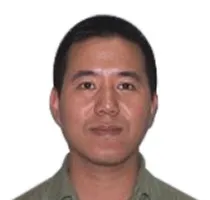Myanmar’s top military general is on an official visit to India this week. Through the visit, Gen. Than Shwe would want to achieve two objectives. As pressure mounts on Myanmar in the run-up to the upcoming general election planned later this year, the General needs support from friendly countries and particularly, from the world’s largest democracy. The visit also comes few weeks after Chinese Premier Wen Jaibao visited Myanmar and the General would use his visit to convey the message to New Delhi that Naypyidaw’s relationship with India remains strong and has in no way diluted in the backdrop of the recent events.
Gen. Than Shwe’s visit to India, the second in six years, comes after some significant developments in Myanmar in the recent months and at a time when the international community is mounting pressure on the military regime over the controversial election laws promulgated in March and to create necessary conditions for credible elections which is expected in November this year. The electoral laws have come under heavy criticism from the opposition groups. As the proposed elections draws nearer, calls for release of opposition leader Aung San Suu Kyi and other political prisoners will grow. Gen. Than Shwe would seek support from India in the face of the increasing pressure and, in return, offer New Delhi a stronger commitment in counter-insurgency cooperation and projects for investments in the country’s infrastructure and natural resources.
Burmese opposition groups have been urging India to ‘review’ its policy towards Myanmar. New Delhi’s official position is that Myanmar needs to speed up its political reform process based on inclusiveness. It is unlikely that New Delhi would go beyond this line, despite growing calls from various quarters for India to pressure Myanmar. Just the week ago, Kurt Campbell, US Assistant Secretary of State for East and Asia-Pacific Affairs has urged India to play a more active role in Myanmar’s political reform.
New Delhi has adopted a ‘nuanced’ approach towards Myanmar – balancing its strategic interests with democracy and human rights. The approach titled from emphasis on democracy towards strategic interests in the nineties. This is a good time for New Delhi to exercise a balance in its approach. New Delhi needs to tell Gen. Than Shwe that it is committed to strengthening ties, at the same time, the General needs to make the upcoming elections credible. New Delhi should take the opportunity to clear the air of doubts surrounding its approach among the international community.
The recently concluded ASEAN Ministerial Meeting (AMM) in Hanoi has called on Myanmar to hold the upcoming general election “in a free, fair, and inclusive manner”. Myanmar’s opposition groups have, on earlier occasions, regarded similar statements as ‘toothless’.
Reports emerged earlier this year alleging that the Myanmar government was carrying out a clandestine nuclear weapons programme with the help of North Korea, and there has been renewed international focus on the country. The issue was raised at the ASEAN Regional Forum (ARF) meeting that followed the AMM meeting last week. US Secretary of State Hillary Clinton warned Myanmar against any cooperation with North Korea on a nuclear programme at the ARF meeting. ASEAN fellow-members had also earlier sought ‘clarification’ from leaders of Myanmar about the country’s nuclear ambitions. The Myanmar military government has denied these allegations and issued statements denying it has any nuclear ambitions. The alleged nuclear links between Naypyidaw and Pyongyang has stolen the attention away from the internal political issues of Myanmar at the meeting, even as Hillary Clinton raised concern about Myanmar’s upcoming elections. New Delhi has so far maintained silence over the issue and it is unlikely the issue would form part of the General’s discussion with Indian officials.
Acutely conscious of its geo-strategic location, Myanmar has been balancing its ties with the two big neighbours – India and China. During Chinese Premier Wen Jaibao’s visit to Myanmar last month, a series of agreements were signed covering oil and gas pipeline, a hydropower station, communications, and aid packages. The agreement on the oil and gas pipeline would allow China to carry oil and gas from the Bay of Bengal to its Southern Yunnan province. Wen’s visit not only strengthened relations but cleared bilateral tensions that had emerged as a result of border instability when Myanmar army attacked an ethnic armed group along Sino-Myanmar border in August last year.
Gen. Than Shwe’s meetings with Indian officials will largely focus on economic and security matters. Since relations began to improve in the 1990s, political and military ties have been strengthened. Bilateral trade has shown an upward trend in the recent past reaching US$ 1.19 billion in 2009-2010. India is planning to invest over US$ 5 billion in two major hydropower projects in Myanmar. Apart from other agreements, the two countries may ink cooperation in pharmaceuticals and Information Technology sectors.
In the final analysis, it is likely that the current balance of Myanmar’s relations will remain the same. Gen. Than Shwe will consider his visit a success by winning New Delhi’s understanding on the upcoming elections and conveying the right signal to New Delhi in its balancing act. New Delhi would want to believe that Myanmar has maintained its policy of ‘strategic neutrality’ vis-à-vis India and China. Critics of New Delhi’s Myanmar policy would continue to see India’s position to be far too titled towards its strategic interests, falling short of international expectations of India playing a more active role in the democratic normalization of Myanmar.
(The author is Associate Fellow at Observer Research Foundation)
The views expressed above belong to the author(s). ORF research and analyses now available on Telegram! Click here to access our curated content — blogs, longforms and interviews.

